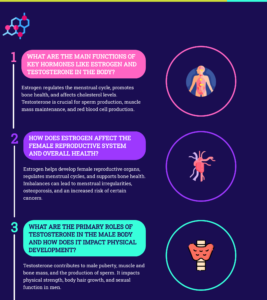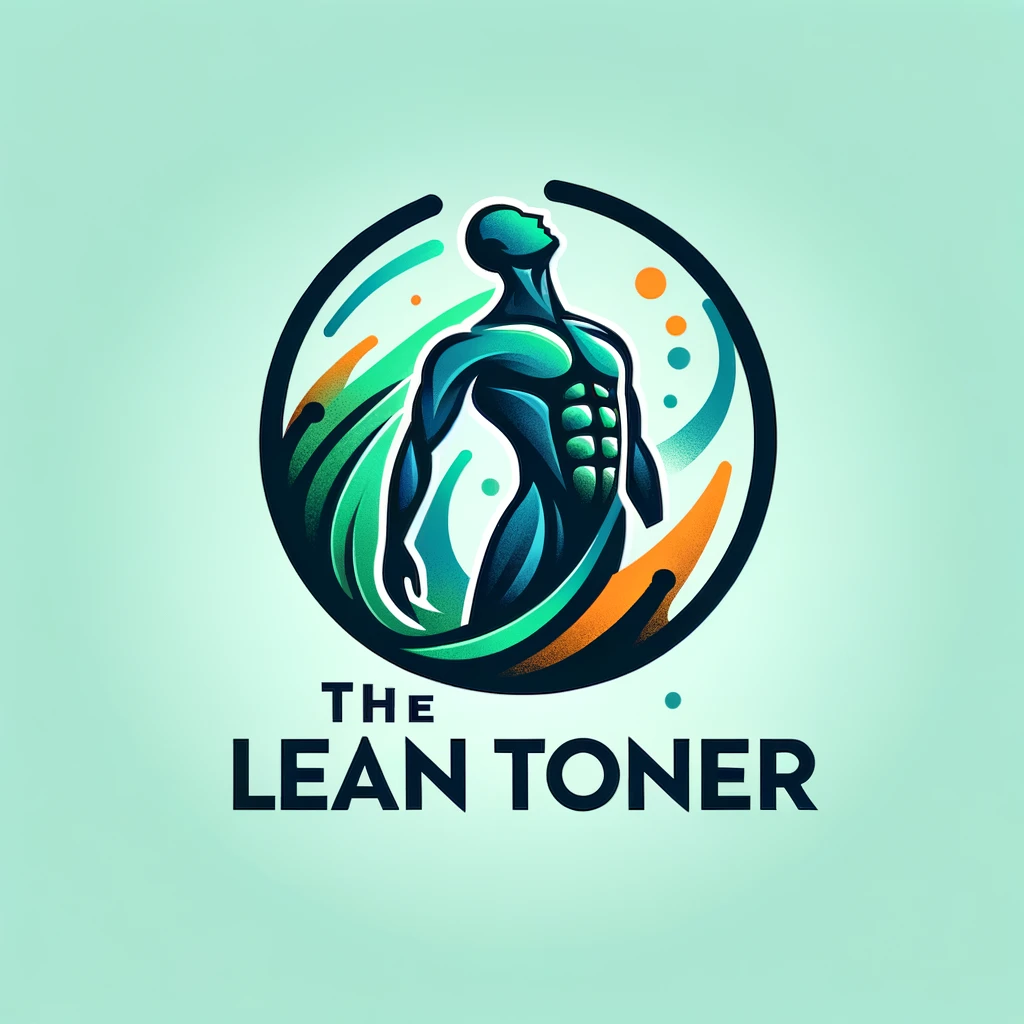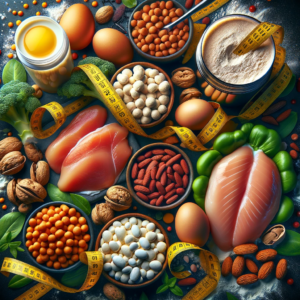Soy Protein and Hormonal Effects
The health and fitness industry is rife with debates over the best dietary practices, and one of the most contentious topics is the impact of soy protein on hormonal balance. Soy protein, a staple in vegetarian and vegan diets, has been both lauded for its nutritional benefits and scrutinized for its potential hormonal effects. This comprehensive guide aims to explore the science behind soy protein and its interaction with hormones, particularly estrogen, in both males and females.
What is Soy Protein?

Soy protein is derived from soybeans, a legume rich in proteins and a variety of nutrients. As a complete protein source, it contains all nine essential amino acids necessary for human health. Soy protein products, including tofu, tempeh, soy milk, and soy protein isolates, are popular among those looking for plant-based protein alternatives.
The nutritional content of soy protein is impressive; it’s low in saturated fat and cholesterol-free, making it a heart-healthy option. Moreover, it’s a versatile ingredient that can be incorporated into numerous dishes, catering to a wide range of dietary preferences.
Hormones 101: Understanding the Basics

Hormones are chemical messengers that play a crucial role in regulating various bodily functions, including growth, metabolism, and reproductive health. Estrogen and testosterone are two key hormones that can be influenced by diet and lifestyle choices.
Maintaining hormonal balance is essential for overall well-being, and any disruptions can lead to health issues. This is where concerns about soy protein and its phytoestrogen content come into play. Phytoestrogens are plant-derived compounds that can mimic the effects of estrogen in the body, albeit with much weaker activity.
The Science Behind Soy and Hormones
Phytoestrogens in soy, particularly isoflavones, have been the subject of numerous studies due to their structural similarity to human estrogen. These compounds bind to estrogen receptors in the body, potentially exerting estrogen-like effects or blocking the action of natural estrogen.
However, the actual impact of soy protein on human health is complex and not fully understood. Some research suggests that moderate soy consumption may offer health benefits, while other studies indicate the need for caution, particularly in certain populations.
A comprehensive review by the American Journal of Clinical Nutrition suggests that soy consumption does not adversely affect markers of female reproductive health. In fact, soy isoflavones have been associated with potential benefits such as reducing the risk of breast cancer and improving bone health in postmenopausal women. However, individual responses to soy protein can vary, and some women may experience changes in their menstrual cycles or other hormonal effects. It’s crucial for women to monitor their health and consult healthcare professionals when adding soy protein to their diets, especially if they have concerns about hormonal balance.
Investigating the Effects of Soy Protein on Female Hormones
For females, the question of whether soy protein affects hormones is significant, especially concerning menstrual health, fertility, and the risk of hormone-sensitive cancers. While some studies have suggested potential concerns, the overall scientific consensus leans towards the safety of soy protein consumption for most women.
A study published in the journal Menopause examined the effects of soy protein supplementation on menstrual cycle length and hormone levels in premenopausal women. The researchers found that soy protein intake did not significantly affect menstrual cycle length or hormone levels, including estrogen and progesterone. The study concluded that moderate soy protein consumption is unlikely to disrupt normal menstrual function in healthy women.
Another study published in Cancer Epidemiology, Biomarkers & Prevention investigated the relationship between soy food intake and breast cancer risk among Asian-American women. The researchers found no significant association between soy food consumption and breast cancer risk. In fact, higher soy intake was associated with a reduced risk of breast cancer in certain subgroups of women, such as those with a family history of breast cancer.
While these studies provide reassurance about the safety of soy protein for most women, it’s important to note that individual responses may vary. Women with a history of hormone-sensitive conditions, such as estrogen receptor-positive breast cancer, may need to exercise caution and consult with their healthcare providers before incorporating soy protein into their diets.
Soy Protein and Male Hormones: What’s the Verdict?
The impact of soy protein on male hormones, particularly testosterone, has been a hot topic. Concerns about ‘soy feminizing effects’ stem from the assumption that phytoestrogens in soy could lower testosterone levels or disrupt male reproductive health. Yet, the scientific consensus, as discussed in studies, suggests that soy protein does not significantly affect testosterone levels in men.
A study published in the Journal of Clinical Endocrinology & Metabolism investigated the effects of soy protein supplementation on testosterone levels in healthy men. The study involved a randomized, double-blind, placebo-controlled trial, where participants consumed either a soy protein supplement or a placebo for 14 days. The researchers found no significant changes in testosterone levels between the soy protein and placebo groups. The study concluded that short-term soy protein supplementation does not have a significant impact on testosterone levels in healthy men.
Despite these findings, the notion that soy can lead to ‘feminizing effects’ persists. This belief may stem from anecdotes or misinformation rather than scientific evidence. Men considering soy protein supplements should do so with an understanding of the current evidence and in consultation with a healthcare provider.
Negative Aspects of Soy Protein Consumption

While soy protein can be a beneficial part of a balanced diet, it’s not without potential drawbacks. Excessive consumption of soy products may lead to digestive discomfort, such as bloating or gas, in some individuals. This is primarily due to the presence of oligosaccharides, a type of carbohydrate that can be difficult to digest.
Moreover, there is ongoing research into the long-term effects of high phytoestrogen intake. Some studies have suggested a possible association between high soy food consumption and an increased risk of thyroid disorders, particularly in individuals with underlying thyroid conditions. However, more research is needed to establish a definitive link and determine the specific mechanisms involved.
Individuals with soy allergies or intolerances should avoid soy protein, as it can trigger allergic reactions or digestive issues. Additionally, those with thyroid issues may need to monitor their soy intake carefully due to potential interactions with thyroid function. If you have concerns about soy protein consumption or its potential effects on your health, it’s best to consult with a healthcare professional.
Who Should Think Twice Before Consuming Soy Protein?

While soy protein is generally considered safe for most individuals, certain populations may need to exercise caution or limit their soy intake. These include:
- Individuals with a history of hormone-sensitive conditions: Women with estrogen receptor-positive breast cancer or other hormone-sensitive cancers may need to avoid or limit soy protein consumption. While the majority of studies suggest that soy protein is safe for most women, it’s important to discuss individual circumstances and medical history with a healthcare provider.
- Individuals taking medications that may interact with phytoestrogens: Some medications, such as hormone replacement therapy or certain cancer treatments, may interact with phytoestrogens in soy. It’s important to consult with a healthcare provider to determine whether soy protein is appropriate in these cases.
- Pregnant women and children: While moderate soy consumption is generally considered safe during pregnancy and childhood, it’s advisable to limit soy intake until more conclusive research is available. As with any dietary changes, it’s best to consult with a healthcare provider or pediatrician to ensure the appropriateness of soy protein for pregnant women and children.
The Debate: To Soy or Not to Soy?

The decision to include soy protein in one’s diet should be based on a thorough evaluation of the pros and cons, personal health history, and dietary needs. While soy protein offers many health benefits, including its high-quality protein content, potential cardiovascular benefits, and positive effects on bone health, it’s essential to consider the potential hormonal effects and consult with a healthcare professional for personalized advice.
For individuals who choose to incorporate soy protein into their diets, it’s important to do so in moderation and as part of a balanced diet. Soy protein should not be relied upon as the sole source of protein but rather as one component of a diverse and nutrient-rich eating plan.
Alternatives to Soy Protein

For those looking for alternatives to soy protein, there are numerous plant-based and animal-based protein sources available. These alternatives can provide a variety of flavors, textures, and nutritional profiles, allowing individuals to meet their protein needs while diversifying their diets. Some popular plant-based protein sources include:
- Pea protein: Derived from yellow peas, pea protein is highly digestible and hypoallergenic. It’s rich in branched-chain amino acids (BCAAs) and has a smooth texture, making it a popular choice for protein powders and plant-based meat alternatives.
- Hemp protein: Made from hemp seeds, hemp protein is a complete protein source that also provides essential fatty acids, fiber, and minerals. It has a slightly nutty flavor and can be added to smoothies, baked goods, or sprinkled over salads.
- Rice protein: Extracted from brown or white rice, rice protein is hypoallergenic and easily digestible. It’s often combined with other plant-based protein sources to create a complete amino acid profile.
- Algae protein: Derived from algae, this protein source is rich in essential amino acids and offers a sustainable alternative to traditional plant-based proteins. It’s particularly suitable for individuals with soy or pea protein allergies.
Animal-based protein sources, such as whey protein, casein protein, or collagen protein, are also popular options for those who don’t follow a vegetarian or vegan diet. These protein sources provide high-quality protein with a complete amino acid profile, along with additional nutrients specific to the animal source.
Conclusion
Soy protein is a nutritious and convenient source of plant-based protein, but its potential hormonal effects warrant careful consideration. By understanding the current scientific evidence and listening to one’s body, individuals can make informed decisions about incorporating soy protein into their diets. For those with specific health concerns or medical conditions, it’s crucial to consult with a healthcare professional for personalized advice.
Remember, individual responses to soy protein can vary, and what works for one person may not work for another. It’s important to prioritize a balanced and diverse diet that includes a variety of protein sources, whether from soy or other alternatives, to meet your nutritional needs effectively.
References and Further Reading
For more information on protein and its role in health, readers can explore the Harvard T.H. Chan School of Public Health’s overview on protein, and for a deeper dive into phytoestrogens, the National Institutes of Health offers valuable insights.
- American Journal of Clinical Nutrition: Soy protein effects on reproductive health
- Menopause: Effects of soy protein supplementation on menstrual cycle length and hormone levels
- Cancer Epidemiology, Biomarkers & Prevention: Soy food intake and breast cancer risk among Asian-American women
- Journal of Clinical Endocrinology & Metabolism: Effects of soy protein supplementation on testosterone levels in healthy men
For those interested in learning more about protein supplements and their role in building muscle, Leantoner.com provides a wealth of resources, including guides on Protein Intake for Maximum Muscle Growth and how to Choose the Perfect Protein Supplement for Building Muscle.
For related articles on sports nutrition and protein supplements, consider exploring the following resources:




